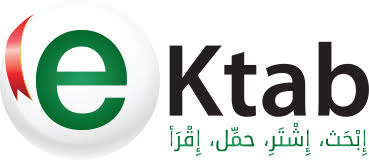Ebooks and digital payments in the Arab region. Interview with Bilal Zahra (eKtab)
The Lab has published a number of articles on digital publishing in the Arab world in recent years. Although new technologies offer enormous opportunities for the region, they are not without obstacles. Indeed, the technical difficulties associated with the EPUB format and the lack of digital payment methods are the two challenges most often mentioned by local actors. In this interview, we speak to Bilal Zahra, the CEO of eKtab (Jordan), about these issues that are so vital for the Arabic book industry.
1) Bilal, please tell us about yourself. How did you become a digital publishing entrepreneur?
My two Partners and I (Haitham the CMO, Edward the CTO and I, the CEO) noticed two major needs in the Arab book market 4 years ago. The first was that there are few Arabic ebooks available. Moreover, it is very hard to find an Arabic paper book, which is a general distribution need, more extensively outside the Arab region – in America, Europe and Australia. There are no bookstore chains in the Arab world and the global companies offer neither paper books nor ebooks in Arabic.
It started as a pride issue – how come Arabs cannot develop a universal standard Arabic EPUB or find an Arabic book to read? So we took upon ourselves this responsibility to simply make Arabic books available and make them of the highest quality possible. We are the first to bring the fully verified EPUB3 and enhanced read-aloud Arabic ebooks to the developing world. We have also solved the problem of the universal format and adapted it to the Arabic fonts and to the right-to-left reading direction. We wanted to prove that Arabs can also innovate and create, as well as empower the Arabic book and its enlightening role. It is our responsibility to preserve and push forward our rich and valuable culture.
2) What was your vision when you launched eKtab?
The main goal was to build the leading and first Arabic ebook marketplace worldwide, not only for the Arab region but for every Arabic reading person wherever they are. It was in mid-2012 when we introduced our experimental platform. We wanted to make sure we had a fully verified product and set two goals: 1) attracting publishers to sign with us and 2) building partnerships with telcos to offer SMS payment to buy books. We officially launched in July 2013.

The main issue now is to get traction, which is part of a long and ongoing process of educating the market on both reading ebooks and using digital payment methods, in addition to converting the largest quantity of books covering all genres. In the Arab book industry, eKtab is the aggregator, the marketplace and the marketer, while in the western world these would be 3 different businesses. So we are taking 3 parallel directions that work in synch but separately. Apart from this, we are also innovating in other fields – we created eKtab Karaoke for music ebooks, and the first Arabic read-aloud ebook reader for PC Android and iOS.
3) What has been your experience of working with ebooks in Arabic?
The Arab market is virgin in both ebooks and e-commerce, but it has a great potential – 150 million internet users and a total population of 400 million. The technical issue of converting the EPUB format to Arabic is a technical stage we have solved now – the main challenge today is educating the users towards reading and buying digitally as well as educating the publishers. There are still a number of issues to improve in distribution – for example boosting the B2C model in contrast with the B2B model publishers are used to.
4) How should publishers go about getting their ebooks distributed in eKtab?
Very easy. The publisher signs an international distribution agreement based on revenue share, then sends us the files of the books and we do the rest for free. We set the price in coordination with publishers, and we handle the conversion to EPUB, the metadata and the marketing and sales. The publishers gets a user account where they can follow the sales at any time.

5) In a recent interview you commented on a very interesting solution for e-payments for the Arab region. Could you tell us more about it?
In a few days we will be introducing a pioneering Cash On Delivery payment option for digital goods. The users can buy credit at eKtab by making the purchase; once this has been done, a delivery person comes to their door step, delivers the order note and receives the cash from the customer: the credit is then activated and the customer can buy any book they love.
6) In your view, what is the future of digital publishing in the Arab world?
Its future is very bright. Arabs are not different from the rest of the world – just see the rate of adoption compared to the US and Europe: the Arab region just needs time. More smartphones and tablets are entering the market, more customers are paying digitally every day. Ebooks solve the distribution problem and are cheaper by an average of 50%. It is happening and we are behind it.

